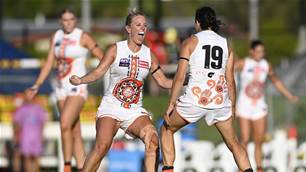Associate Professor Kate Seear says there are some really quirky issues surrounding drugs in sport and the subsequent testing of athletes by WADA and ASADA.
She said there’s a “weird reversal” by some sports in the way they treat their athletes as compared to the way the law treats people in general society.
“If a person is found to have drugs in their system it’s called a strict liability offence, which means that it’s easier for the prosecution or the governing body of a sport to then prosecute that person," Seear said.
“If they’re in your system you’re liable unless you can get out of it through some very technical loophole and there’s broadly in a number of codes a penalty that flows from that.
“That’s quite different to what we’d normally see in other areas of law, where if a person is found to have drugs on them or drugs in their system a person would be innocent or proven guilty and the body: the police or prosecutor who’s alleging you’re guilty of an offence, would have to prove you’re guilty of that offence.
“But it’s kinda reversed a little when it comes to sport and athletes don’t have exactly the same rights and protections, so that’s quite a quirk and it’s quite unusual and it’s often justified on the basis there’s something very special about sport that allows sporting organisations to skip over those ordinary requirements of due process and I think that’s something which is a bit concerning and worthy of discussion and debate,” she said.

The difference is if an athlete has drugs in their system it’s a four year mandatory sentence, whereas in general society the time to be served is “up for discussion and argument and is more nuanced and there might be some room to move” but in sport the penalties are under stricter rules and due process is disregarded and she feels this is concerning as athletes rights are “eroded in a sporting context”.
Seear said some peoples’ perceptions are they see athletes’ as having a high standing in society including wealth and fame, so they should automatically wear the invasions of privacy placed upon them and bear the consequences of their actions if they are deemed to be guilty of having taken illicit substances.
Many sporting organisations regulate both performance enhancing and other illicit drugs so they often have policies that allow for a person to be suspended if they’ve consumed an illicit substance and again some of the normal due processes expected or hoped to see have been unavailable to athletes in some sports and I think that’s a problem.
She also told The Women’s Game about another policy she feels is obtrusive to athletes living their lives and it’s termed the Whereabouts or Requirements policy where athletes “are on the clock” and have to let the sporting authorities know of their whereabouts at all times, so they can be tested at anytime those agencies decide to show up on their doorstep or wherever they may be.
“That’s often justified on the basis of we need to know where athletes are, we need to be able to spring tests on them, when they’re not suspecting so they can’t avoid and evade testers, which is a pretty significant imposition and a major invasion of their privacy is often justified on the basis there’s something special about sport and there’s always a possibility athletes will try to avoid detection, so we need to track and monitor them at all times,” she said.
Related Articles

Korean golf star Byeong Hun An cops doping ban

Socceroo star's message to kids: Don't be an AFL player













